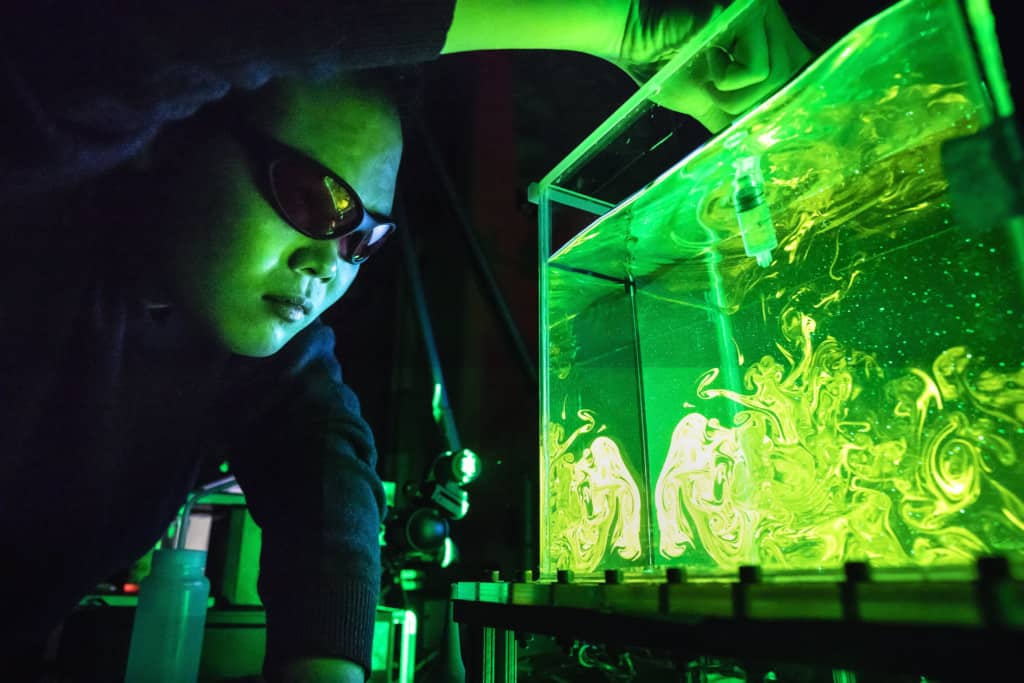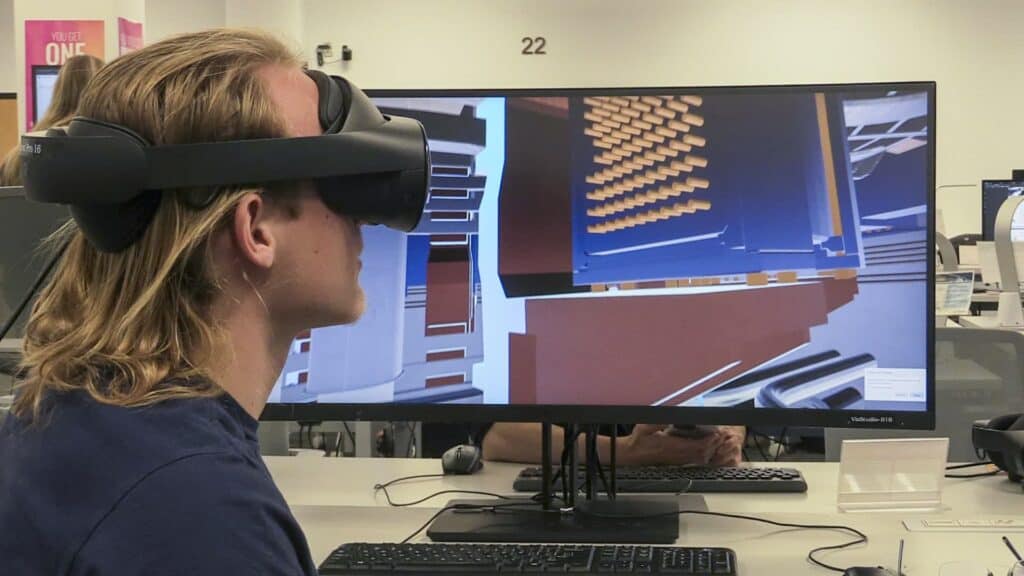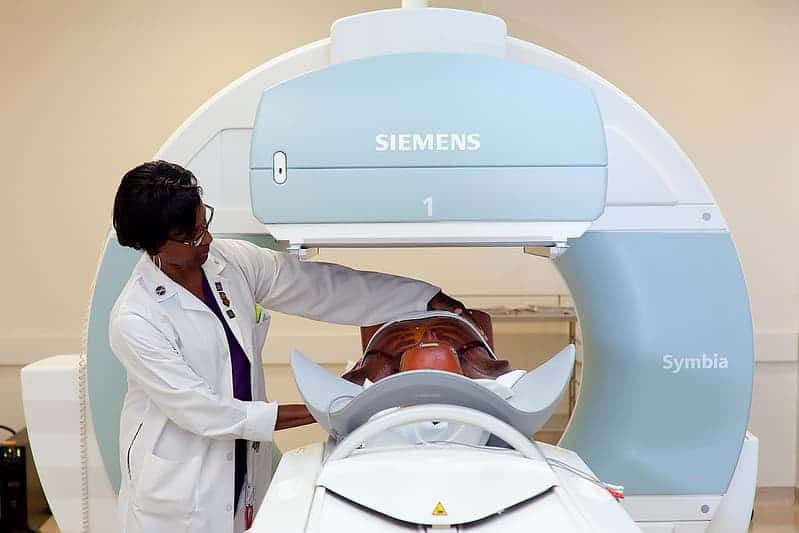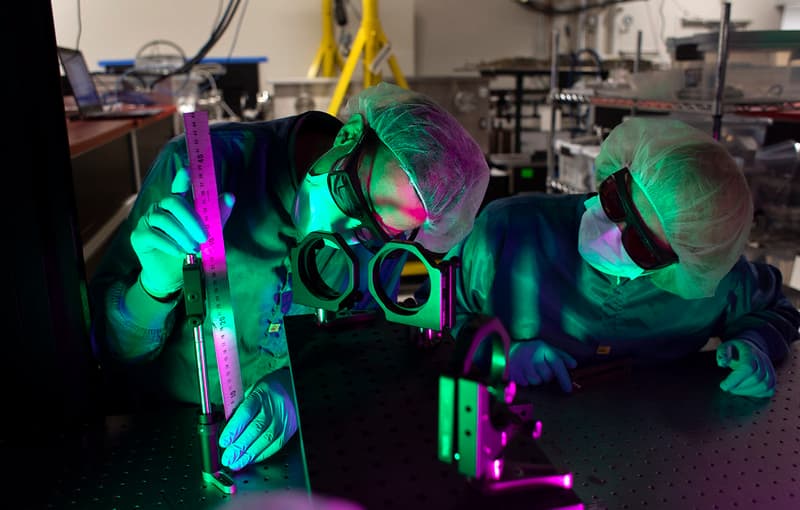
NERS Minor
Coming Fall 2025! Dive into the cutting-edge world of nuclear and plasma processes, radiation applications, and their impact on industries, healthcare, government, and the environment. Perfect for non-NERS majors seeking to broaden their horizons!
Eligibility
- Good academic standing (GPA ≥ 2.0).
- Declared a major other than NERS.
Program Highlights
- Students can begin declaring Fall 2025
- 16 Credit Hours: Flexible and tailored coursework.
- Core Course (4 credits): Fundamentals of NERS
- Foundation Options (Choose 1+):
- Elements of NERS
- Nuclear Engineering Materials
- Plasmas & Fusion
- Radiological Health Engineering
- Electives: Select from 300-level+ NERS courses or specialized topics.
Optional Specializations
Customize your minor with focus areas like:

Fission Systems

Nuclear Materials

Radiation Measurements & Applications

Plasma Science & Engineering
Get Support Every Step of the Way
Our dedicated advisors and administrative team will guide you through requirements, career opportunities, and academic planning.
Requirements
Minimum Program Requirements
A minimum of 16 credits must be completed with a grade of C or higher in all minor courses.
Required Core Course:
NERS 250 Fundamentals of NERS (4 cr) (W)
*NERS 211 may be substituted for NERS 250 on approval by the NERS Undergraduate Chair
Foundation Course (must select 1 or more):
- NERS 311 Elements of NERS I (3 cr) (F)
- NERS 421 Nuclear Engineering Materials (3 cr) (F)
- NERS 471 Introduction to Plasmas and Fusion (3 cr) (F)
- NERS 484 Radiological Health Eng Fundamentals (4 cr) (F)
Electives (remaining credits to come from below list to hit 16 cr)
- Any 300 level and above NERS course (a maximum of 3 credits of NERS 499 can be used towards the minor)
- Physics 405 (F/W)
Course Prerequisite Information
Students can reference the NERS course descriptions, NERS course schedule, and Atlas for a basic introduction to NERS Courses.
Optional Specialization Areas
The recommended specializations provide guidance for creating sensible course structures for NERS students minoring in Nuclear Engineering & Radiological Sciences, particularly for those seeking expertise in fission systems, nuclear materials, radiation protection and measurements, or plasma science and engineering. Bridge courses are listed as key electives to take before selecting more advanced specialization courses, following the completion of the core and foundational courses. Students seeking a broad generalization in Nuclear Engineering are recommended to take all foundation courses in lieu of listed bridge or advanced specialization courses.
Fission Systems
- Foundation Courses: NERS 311 (F)
- Bridge Courses: NERS 312 (W)
- Advanced Specialization: NERS 320 (W), NERS 344 (W), NERS 420 (F), NERS 425 (W), NERS 441 (F), NERS 442 (W), NERS 444 (F), NERS 462 (F), NERS 490 (F/W), NERS 499 (F/W), NERS 543 (F), NERS 544 (W), NERS 546 (F), NERS 547, NERS 551 (W), NERS 561 (W), NERS 570 (F), NERS 590 (F/W)
Nuclear Materials
- Foundation Courses: NERS 421 (F), NERS 320 (W)
- Bridge Courses: NERS 521 (F)
- Advanced Specialization: NERS 425 (W), NERS 499 (F/W), NERS 522 (W), NERS 524 (W), NERS 531 (F), NERS 590 (F/W)
Radiation Measurements & Applications
- Foundation Courses: NERS 311 (F)
- Bridge Courses: NERS 315 (W)
- Advanced Specialization: NERS 312 (W), NERS 484 (F), NERS 490 (F/W), NERS 499 (F/W), NERS 518 (F), NERS 532 (F), NERS 585 (F), NERS 586 (W), NERS 590 (F/W)
Plasma Science & Engineering
- Foundation Courses: NERS 471 (F)
- Bridge Courses: Physics 405 (F/W), NERS 472 (W)
- Advanced Specialization: NERS 571 (F), NERS 572 (W), NERS 573 (F), NERS 574 (F), NERS 575 (W), NERS 576, NERS 577 (F), NERS 578 (F), NERS 590 (F/W), NERS 672 (W), NERS 673, NERS 674 (F), NERS 675
Schedule note: Courses are typically offered in the Fall Term (designated with an ‘F’) or the Winter Term (designated with a ‘W’). However, term offerings may occasionally change.

